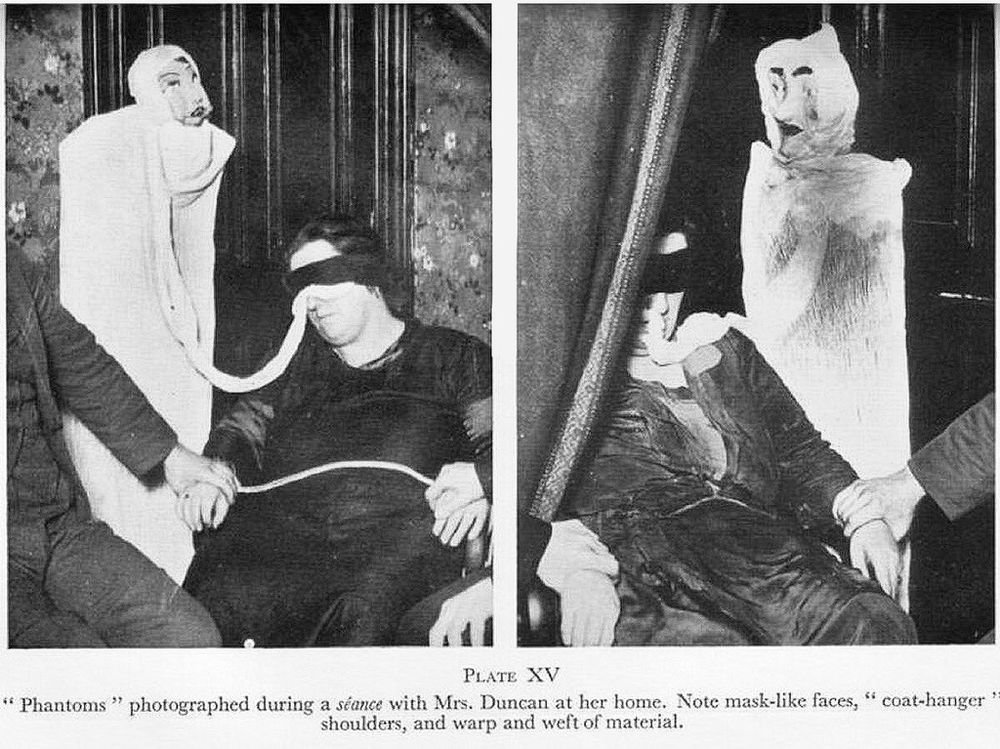The Witchcraft Act of 1735 was a landmark act for Britain.
Her conviction and sentencing earned her the title of the last witch of Britain.
Helen Duncan (born Helen MacFarlane) was born in Callander, Scotland, in 1897.

Even as a child, Helen was quite the imposter.
Vincent Woodcock was one man who claimed Helen Duncan changed his life.
The deceased wife then materialized from the ectoplasm and asked Woodcock and his sister-in-law to come forward.

But not everyone shared her devotees faith in her supernatural powers.
In 1928, photographer Harvey Metcalfe attended one of Duncans seances and took flash photographs of her alleged spirits.
When the committee forced her to swallow a dye before one of her seances, Duncan produced no ectoplasm.

Photographs shot by Harvey Metcalfe during a 1928 seance exposed Duncans fraud.
Helen Duncan expelling cheesecloth ectoplasm.
She clutched the railings and screamed and screamed.

When the doctor asked Henry Duncan to turn out his pockets, he refused.
Duncan was finally caught in the act during a performance in Edinburgh in 1933.
During the seance, the spirit of a little girl called Peggy emerged.
A member of the audience lunged at the emerging shape and the lights were turned on.
The spirit was revealed to be made from a stockinette undervest.
Duncan was charged with fraud and fined 10.
But Duncans career was far from over.
Duncan apparently got wind of the tragedy and decided to use it to her advantage.
A piece of ectoplasmthis one made of artificial silkat the Cambridge University Library.
But the Navy wasnt going to take chances.
What if Duncan was really clairvoyant?
What if she revealed classified military information to the enemy?
With the critical D-Day landings on the horizon, the British government ordered Duncans arrest.
On 19 January 1944, a couple of undercover policemen went to a seance taking place in Portsmouth.
Duncan was arrested and initially charged under the Vagrancy Act of 1824, which was a minor offense.
The subsequent trial was a media sensation.
Many witnesses were called in to the stand and some recalled their experiences defending Duncan.
She died a short time later in her home in Edinburgh.
Duncans trial most certainly contributed to the repeal of the Witchcraft Act.
Winston Churchill was furious when he learnt that an archaic act was used in a modern court of law.